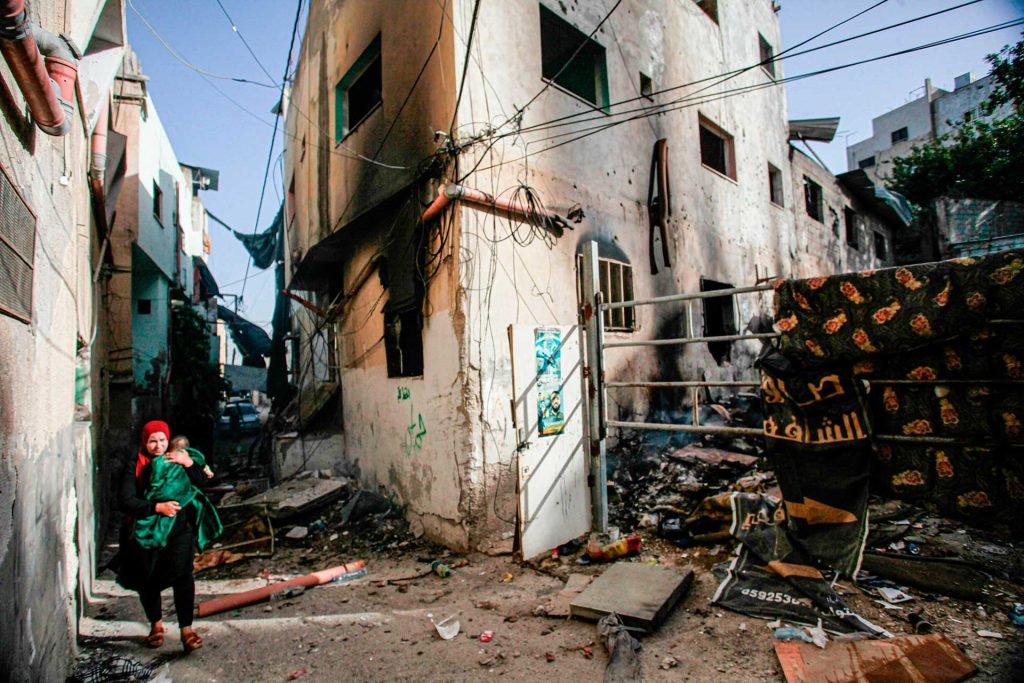FCA grants 220,000 euros to help families in East Jerusalem and the West Bank

The disaster in Gaza has also weakened the humanitarian situation in the other Palestinian territories. Finn Church Aid’s work in East Jerusalem and the West Bank emphasises psychosocial support, protecting children in a humanitarian crisis, and training teachers for distance learning.
FINN CHURCH AID (FCA) has granted 220,000 euros from its disaster fund to boost help for families in East Jerusalem and the West Bank. The work focuses on pre-existing projects such as psychosocial support, child protection in a humanitarian crisis, and teachers’ distance teaching skills. In addition, FCA aims to support those families who have lost their livelihood due to the crisis.
“Along with the very challenging situation in Gaza, families in East Jerusalem and the West Bank are also suffering from a strong humanitarian crisis. Due to the violence in the area, the children are traumatised and afraid. The mental burden is huge”, emphasizes Sabina Bergholm, FCA’s Country Director in the region.
The humanitarian situation in the Palestinian territories has deteriorated sharply since October 7, 2023, when the terrorist organisation Hamas attacked Israel and took hostages. Since then, Israel has attacked Gaza from the air and ground.
The difficult situation in the Gaza Strip affects the lives of families in the West Bank and East Jerusalem as well. Forced transfers of Palestinians, violence against them and the demolition of homes have increased significantly. The borders of the Palestinian territories are closed, leading to many families losing their livelihoods. Additionally, goods do not move across the borders as before.
Work focuses on the psychosocial well-being of children and families
FCA has been working on high-quality and equal education in the West Bank and East Jerusalem for years. The war has strongly affected children’s opportunities to go to school and live a safe everyday life.
“In East Jerusalem and the West Bank, the crisis has led to children not being able to go to school, or their way to school being unsafe. The schools in the area have switched either completely or for the most part to distance learning. Children’s opportunities to learn have weakened. That’s why teachers need to be supported in organising distance education,” emphasises Bergholm.
The goal of FCA and its local partner organisations is to support the psychosocial well-being of children during crisis. In times of crisis, school is a natural place to bring the community together and deal with trauma. Teachers in the West Bank and East Jerusalem will receive support not only for organising distance education, but also for how they can teach and deal with traumatised children in a new situation.
Training is organised in cooperation with local professionals and volunteers from Teachers Without Borders.
FCA is constantly looking for new ways to help
At the end of October, FCA sent a humanitarian aid expert to the Middle East to gather information on how the organisation could best help people in need. FCA does not work in Gaza for the time being.
“It has been very difficult to get information about the situation in Gaza, and only a few organisations have been able to deliver aid to Gaza. The goal of FCA is to enhance our aid work in a safe way in the future, so that we can ensure that aid reaches the most vulnerable people,” says Marja Jörgensen, Director of International Programmes.
The humanitarian situation in Gaza is catastrophic. According to information from the Gaza authorities provided by the UN humanitarian organization (OCHA), up to 15,000 civilians have died during the war. Of Gaza’s 2.2 million inhabitants, 1.8 million have had to leave their homes and become internally displaced.
Media requests and inquiries:
Country director Sabina Bergholm,
sabina.bergholm@kua.fi, +358 40 669 3930
Director of International Programmes Marja Jörgensen,
marja.jorgensen@kua.fi, +358 50 567 0464
Communications Specialist Ulriikka Myöhänen
ulriikka.myohanen@kua.fi, +358 50 576 7948